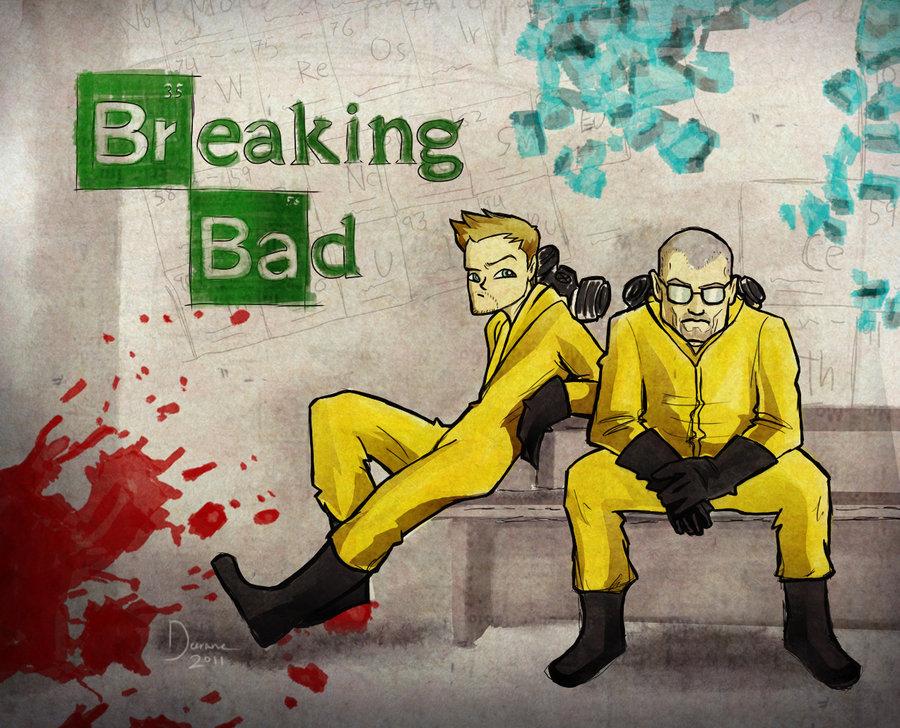It is undeniable that television has finally surpassed film: TV is where the best storytelling, acting, writing, and even directing is going on. Movies are now more expensive and dull than ever, while TV is still readily available, consumer-friendly (except for some god-awful commercials) and much more captivating. Moviegoers rarely exhibit the same kind of fanatic obsession with which TV-watchers, or shall I say ‘devourers’, engage with their programs. Breaking Bad undoubtedly is a leading protagonist in this fairly recent and ongoing revolution. Now, the great contemporaneous show’s story has concluded in what might be the most satisfying finale I have seen.
“Felina” felt like an epilogue to the story concluded in “Ozymandias.” It neatly wrapped up all the loose threads and uncertainties blown to outstanding proportions in this season’s third-to-last episode. Can there be anything more fulfilling than seeing Walt finally accomplish everything he set out to? Though, uncharacteristic of Walt, whose actions often come back to screw him, it was in fact his birthday. And on his birthday it only seemed fitting that he’d succeed, that everything would work according to his masterful plan. He didn’t just prove to his one-time partners, Elliot and Gretchen, that he was not only a “somebody” but a “super-somebody,” but he also used them to get his money to Walt Jr, which was one of his major goals for so long (and his original goal for getting in the meth business). He made sure that Skyler’s legal troubles would go away. He got his revenge on Lydia and the Nazis through two ingenious schemes so absurd that it seemed as if they would inevitably fail. The machine gun and ricin storylines, which were introduced as the first scenes of each half season (respectively), came to a symmetrical close.
Like all the baddest gangsters—Tony Montana, Stringer Bell, Frank Costello—Walter White died in the game. What’s more perfect than a grimacing Mr. White laid out in the middle of his meth lab with “Baby Blue” playing in the background? He died as Heisenberg, and he was content. No matter how monstrous he became, we rooted for him all the same. It did not matter that he probably ruined the rest of his family’s life; he died satisfied, and so did we.
It was also a satisfying conclusion for creator, Vince Gilligan, who wrote and directed this final episode in a David Chase-esque manner. Hats off to him. “Felina” was as well-directed an episode of Breaking Bad as I have seen. This season has seen a growing trend of stylistic, directorial flares—with extreme close-ups, extended pauses for building up tension, and music choice. Ever since “Caballo Sin Nombre,” I knew that we were in for some Sopranos-style thematic music. I still can’t get “Horse With No Name” out of my head. This stylistic trend culminated in a beautifully directed finale, where most notably there is a flashback to a time where Jesse created a box for Woodshop that he was genuinely proud of. Then, we abruptly flash forward to the meth lab where he is chained, enslaved, and forced to create something he considers as absolutely appalling.
In addition to this scene of artistry, there were three other scenes worth noting. The first was when Walt is in blizzarding New Hampshire praying to some higher power for the car to start, for the police to drive right by him. Throughout the series we know Walt as a scientific, calculating man. But now Walt is more lowly and desperate than we have ever seen him. He knows that if the car does not start he will most likely die without integrity or be arrested, that he will not feel like the “somebody” he has worked towards for those last few years. Science and reasoning cannot save him, so he turns to a higher power, he puts his faith in God and prays for a miracle. We viewers can feel the tension in his body as the police pass by; then, miraculously, the keys fall directly into his lap. It’s his 51st birthday. He now knows he cannot fail.
The second scene worth noting is when Jesse drives out of the Nazi compound. He yelps with joy, and just seems to continue on driving. I don’t know if he will ever stop. Jesse is finally liberated. He has been liberated from Todd, the Nazis, and his enslavement in the meth lab. He is liberated from Walt. He is liberated from the business. He is finally a free man, and we can only hope that he will also be liberated from the clutches of drug abuse. The road has always symbolized freedom in American culture, so it is fitting that Jesse’s final moments on this show are on the road.
The third is Walt’s last conversation with Skyler. Like Jesse, Skyler is able to finally find some liberation during her last moments in this series. Who knows the last time Walt truly told her the whole, raw truth. She has been enslaved, bound to Walt’s lies for a hellish eternity now. In a way, Walt turned her into a liar herself. She has only been around lies. Truth is what liberates her and allows her to take her dramatic breath at the end that so carries this heavy scene. She says, “If I have to hear one more time that you did this for the family —” “I did it for me,” Walt said, “I liked it. I was good at it. And I was really — I was alive.” Finally hearing the truth frees her and her relief is so present in that great breath. No more lies. In a sense, it also freed him too, to hear himself tell the raw truth, to finally admit to himself why he chose to be a monster.
I was listening to NPR last week and a TV analyst was giving an interview. He argued that the reason we love dramas like Breaking Bad, is that they provide us with the opportunity to be members of a tight-knit community called “the audience.” Indeed, I do not believe a show has ever bred the kind of intense, engaged, passionate, communal audience that Breaking Bad has created. We, the audience, the Walter White and Gus Fring and Jesse Pinkman lovers, the t-shirt-wearing obsessed, the Vince Gilligan acolytes, have made watching this historic work of art a thrilling experience like none other. We have put our blood and tears into the making of one of the greatest stories of all time.


